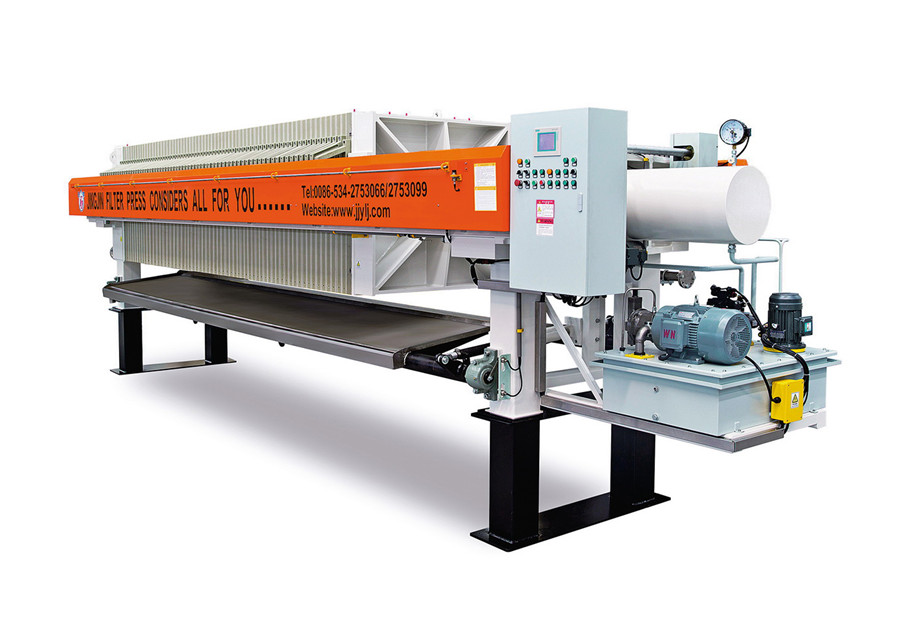Filter presses are an integral part of industrial filtration processes, allowing liquids to be separated from suspended solids. Two common types of filter presses are automatic filter presses and chamber filter presses.
Automatic filter presses are fully automated filtration systems that provide consistentperformance. They typically feature automated plate movement, tensioning, cake discharge and plate washing functions. This eliminates manual labor and ensures repeatable results. Automatic filter presses are ideal for high volume applications or when consistent output is critical. They provide:
- High throughput – Up to 200 plates allow for large filtration areas and high capacity.
- Precise control – Automated controls provide repeatable results batch after batch.
- Reduced manpower – Automated operation requires minimal operator involvement.

Chamber filter presses utilize a single chamber that contains multiple filter plates.In contrast to automatic presses, chamber filter presses require manual operation. However, they provide several benefits:
- Compact design – The single chamber takes up less floor space than linear automatic presses.
- Lower cost – Chamber presses typically cost less than fully automated options.
- Modularity – Additional chambers can be added as throughput requirements increase.
Common Applications For Automatic Filter Presses
- Wastewater treatment – Filtering sludge and biosolids in municipal and industrial wastewater treatment plants. Automatic presses provide consistent dewatering performance to reduce the volume of waste solids.
- Mineral processing – Dewatering concentrates and tailings from mining operations, especially for minerals like iron ore, copper, gold and zinc. This reduces waste volume and moisture content for safer and more efficient disposal.
- Food processing – Recovering solvents and removing moisture from products like edible oils, juice concentrates, starch and protein isolates. Automatic presses ensure consistent output quality for food applications.
- Chemical processing – Separating liquids from solids in processes like pharmaceutical filtration, fine chemical production, dye manufacture and petrochemical refining. Automated operation minimizes human intervention in controlled environments.
- Manufacturing – Removing coolants and tramp oils from metal chips and swarf in metalworking and machine shop applications. Automatic presses provide round-the-clock operation with minimal supervision.